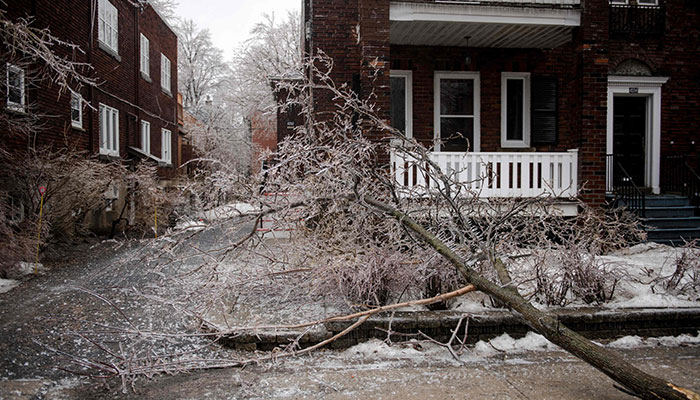Two dead as eastern Canada witnesses worst ice storm in 20 years
Prime Minister Justin Trudeau, who was in Montreal, described the situation as a very difficult moment for Montrealers
April 07, 2023

Eastern Canada is reeling from the aftermath of an ice storm that has claimed two lives and left one million people without power.
As fallen trees blocked roads and downed power lines, the city of Montreal was left in a state of devastation. The storm battered Quebec and Ontario, Canada's two most populous provinces, but it was Quebec that bore the brunt of the damage, resulting in a major power outage, according to AFP.
The majority of the outages were due to tree limbs heavy with ice that snapped and damaged power lines. Authorities have urged people to stay away from downed power lines and avoid walking in wooded areas where trees laden with ice might topple.
An Ontario resident was killed by a falling tree on Wednesday, while a man in his 60s died on Thursday morning, crushed by a branch he was trying to cut in his yard, about 60 kilometers (37 miles) west of Montreal.
Nearly one million customers were still without power on Thursday evening, and it is the largest power outage in Quebec since an ice storm in 1998 that threw the province into chaos for several weeks.
Canadian Prime Minister Justin Trudeau, who was in Montreal, described the situation as a very difficult moment for Montrealers and for people across the region who have been hit by the ice storm.
Road crews were still working on Thursday evening to clear streets of debris. Emergency centres have taken in residents without power, while temperatures hovered near freezing.
According to Quebec Premier Francois Legault, events like this could become more frequent in the coming years due to climate change.











